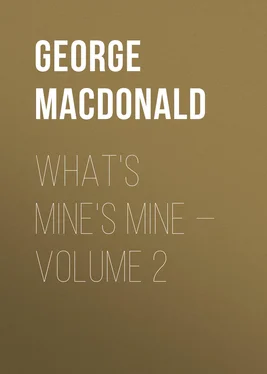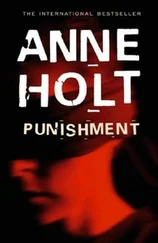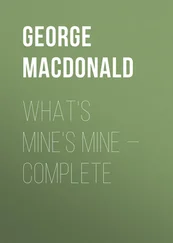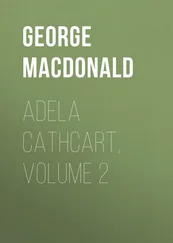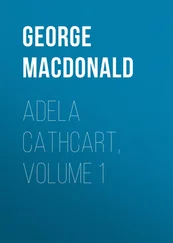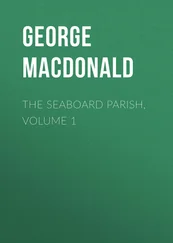George MacDonald - What's Mine's Mine — Volume 2
Здесь есть возможность читать онлайн «George MacDonald - What's Mine's Mine — Volume 2» — ознакомительный отрывок электронной книги совершенно бесплатно, а после прочтения отрывка купить полную версию. В некоторых случаях можно слушать аудио, скачать через торрент в формате fb2 и присутствует краткое содержание. Издательство: Иностранный паблик, Жанр: foreign_prose, foreign_religion, foreign_antique, на английском языке. Описание произведения, (предисловие) а так же отзывы посетителей доступны на портале библиотеки ЛибКат.
- Название:What's Mine's Mine — Volume 2
- Автор:
- Издательство:Иностранный паблик
- Жанр:
- Год:неизвестен
- ISBN:нет данных
- Рейтинг книги:4 / 5. Голосов: 1
-
Избранное:Добавить в избранное
- Отзывы:
-
Ваша оценка:
- 80
- 1
- 2
- 3
- 4
- 5
What's Mine's Mine — Volume 2: краткое содержание, описание и аннотация
Предлагаем к чтению аннотацию, описание, краткое содержание или предисловие (зависит от того, что написал сам автор книги «What's Mine's Mine — Volume 2»). Если вы не нашли необходимую информацию о книге — напишите в комментариях, мы постараемся отыскать её.
What's Mine's Mine — Volume 2 — читать онлайн ознакомительный отрывок
Ниже представлен текст книги, разбитый по страницам. Система сохранения места последней прочитанной страницы, позволяет с удобством читать онлайн бесплатно книгу «What's Mine's Mine — Volume 2», без необходимости каждый раз заново искать на чём Вы остановились. Поставьте закладку, и сможете в любой момент перейти на страницу, на которой закончили чтение.
Интервал:
Закладка:
The father trusted his son's hearing as implicitly as his own sight. When he saw a certain look come on his face, he would drop on the instant, and crouch as still as if he had ears and knew what noise was, watching Kob's face for news of some sound wandering through the vast of the night.
It seemed at times, however, as if either he was not quite deaf, or he had some gift that went toward compensation. To all motion about him he was sensitive as no other man. I am afraid to say from how far off the solid earth would convey to him the vibration of a stag's footstep. Bob sometimes thought his cheek must feel the wind of a sound to which his ear was irresponsive. Beyond a doubt he was occasionally aware of the proximity of an animal, and knew what animal it was, of which Rob had no intimation. His being, corporeal and spiritual, seemed, to the ceaseless vibrations of the great globe, a very seismograph. Often would he make his sign to Kob to lay his ear on the ground and listen, when no indication had reached the latter. I suspect the exceptional development in him of some sense rudimentary in us all.
He had the keenest eyes in Glenruadh, and was a dead shot. Even the chief was not his equal. Yet he never stalked a deer, never killed anything, for mere sport. I am not certain he never had, but for Rob of the Angels, he had the deep-rooted feeling of his chief in regard to the animals. What they wanted for food, they would kill; but it was not much they needed, for seldom can two men have lived on less, and they had positively not a greed of any kind between them. If their necessity was meal or potatoes, they would carry grouse or hares down the glen, or arrange with some farmer's wife, perhaps Mrs. Macruadh herself, for the haunches of a doe; but they never killed from pleasure in killing. Of creatures destructive to game they killed enough to do far more than make up for all the game they took; and for the skins of ermine and stoat and fox and otter they could always get money's worth; money itself they never sought or had. If the little birds be regarded as earning the fruit and seed they devour by the grubs and slugs they destroy, then Hector of the Stags and Rob of the Angels also thoroughly earned their food.
When a trustworthy messenger was wanted, and Rob was within reach, he was sure to be employed. But not even then were his father and he quite parted. Hector would shoulder his gun, and follow in the track of his fleet-footed son till he met him returning.
For what was life to Hector but to be with Rob! Was his Mary's son to go about the world unattended! He had a yet stronger feeling than any of the clan that his son was not of the common race of mortals. To Hector also, after their own fashion, would Rob of the Angels tell the tales that suggested the name his clanspeople gave him—wonderful tales of the high mountain-nights, the actors in them for the most part angels. Whether Rob believed he had intercourse with such beings, heard them speak, and saw them, do the things he reported, I cannot tell: it may be that, like any other poet of good things, he but saw and believed the things his tales meant, the things with which he represented the angels as dealing, and concerning which he told their sayings. To the eyes of those who knew him, Rob seemed just the sort of person with whom the angels might be well pleased to hold converse: was he not simplicity itself, truth, generosity, helpfulness? Did he not, when a child, all but lose his life in the rescue of an idiot from the swollen burn? Did he not, when a boy, fight a great golden eagle on its nest, thinking to deliver the lamb it had carried away? Knowing his father in want of a new bonnet, did not Rob with his bare hands seize an otter at the mouth of its hole, and carry it home, laughing merrily over the wounds it had given him?
His voice had in it a strangely peculiar tone, making it seem not of this world. Especially after he had been talking for some time, it would appear to come from far away, not from the lips of the man looking you in the face.
It was wonderful with what solemnity of speech, and purity of form he would tell his tales. So much in solitude with his dumb father, his speech might well be unlike the speech of other men; but whence the impression of cultivation it produced?
When the Christmas party broke up, most of the guests took the road toward the village, the chief and his brother accompanying them part of the way. Of these were Rob and his father, walking hand in hand, Hector looking straight before him, Rob gazing up into the heavens, as if holding counsel with the stars.
"Are you seeing any angels, Rob?" asked a gentle girl of ten.
"Well, and I'm not sure," answered Rob of the Angels.
"Sure you can tell whether you see anything!"
"Oh, yes, I see! but it is not easy to tell what will be an angel and what will not. There's so much all blue up there, it might be full of angels and none of us see one of them!"
"Do tell us what you see, Rob, dear Rob," said the girl.
"Well, and I will tell you. I think I see many heads close together, talking."
"And can you hear what they will be saying?"
"Some of it."
"Tell me, do tell me-some-just a little."
"Well then, they are saying, one to the other—not very plain, but I can hear—they are saying, 'I wonder when people will be good! It would be so easy, if only they would mean it, and begin when they are little!' That's what they are saying as they look down on us walking along."
"That will be good advice, Rob!" said one of the women.
"And," he resumed, "they are saying now—at least that is what it sounds to me—'I wish women were as good as they were when they were little girls!'"
"Now I know they are not saying that!" remarked the woman. "How should the angels trouble themselves about us! Rob, dear, confess you are making it up, because the child would be asking you."
Rob made no answer, but some saw him smile a curious smile. Rob would never defend anything he had said, or dispute anything another said. After a moment or two, he spoke again.
"Shall I be telling you what I heard them saying to each other this last night of all?" he asked.
"Yes, do, do!"
"It was upon Dorrachbeg; and there were two of them. They were sitting together in the moon—in the correi on the side of the hill over the village. I was lying in a bush near them, for I could not sleep, and came out, and the night was not cold. Now I would never be so bad-mannered as to listen where persons did not want me to hear."
"What were they like, Rob, dear?" interrupted the girl.
"That does not matter much," answered Rob; "but they were white, and their eyes not so white, but brighter; for so many sad things go in at their eyes when they come down to the earth, that it makes them dark."
"How could they be brighter and darker both at once?" asked the girl, very pertinently.
"I will tell you," answered Rob. "The dark things that go in at their eyes, they have to burn them in the fire of faith; and it is the fire of that burning that makes their eyes bright; it is the fire of their faith burning up the sad things they see."
"Oh, yes! I understand now!" said the girl. "And what were their clothes like, Rob?"
"When you see the angels, you don't think much about their clothes."
"And what were they saying?"
"I spoke first—the moment I saw them, for I was not sure they knew that I was there. I said, 'I am here, gentlemen.' 'Yes, we know that,' they answered. 'Are you far from home, gentlemen?' I asked. 'It is all one for that,' they answered. 'Well,' said I, 'it is true, gentlemen, for you seem as much at home here on the side of Dorrachbeg, as if it was a hill in paradise!' 'And how do you know it is not?' said they. 'Because I see people do upon it as they would not in paradise,' I answered. 'Ah!' said one of them, 'the hill may be in paradise, and the people not! But you cannot understand these things.' 'I think I do,' I said; 'but surely, if you did let them know they were on a hill in paradise, they would not do as they do!' 'It would be no use telling them,' said he; 'but, oh, how they spoil the house!' 'Are the red deer, and the hares, and the birds in paradise?' I asked. 'Certain sure!' he answered. 'Do they know it?' said I. 'No, it is not necessary for them; but they will know it one day.' 'You do not mind your little brother asking you questions?' I said. 'Ask a hundred, if you will, little brother,' he replied. 'Then tell me why you are down here to-night.' 'My friend and I came out for a walk, and we thought we would look to see when the village down there will have to be reaped.' 'What do you mean?' I said. 'You cannot see what we see,' they answered; 'but a human place is like a flower, or a field of corn, and grows ripe, or won't grow ripe, and then some of us up there have to sharpen our sickles.' 'What!' said I, for a great fear came upon me, 'they are not wicked people down there!' 'No, not very wicked, but slow and dull.' Then I could say nothing more for a while, and they did not speak either, but sat looking before them. 'Can you go and come as you please?' I asked at length. 'Yes, just as we are sent,' they answered. 'Would you not like better to go and come of yourselves, as my father and I do?' I said. 'No,' answered both of them, and something in their one voice almost frightened me; 'it is better than everything to go where we are sent. If we had to go and come at our own will, we should be miserable, for we do not love our own will.' 'Not love your own will?' 'No, not at all!' 'Why?' 'Because there is one—oh, ever so much better! When you and your father are quite good, you will not be left to go and come at your own will any more than we are.' And I cried out, and said, 'Oh, dear angel! you frighten me!' And he said, 'That is because you are only a man, and not a—' Now I am not sure of the word he said next; bat I think it was CHRISTIAN; and I do not quite know what the word meant."
Читать дальшеИнтервал:
Закладка:
Похожие книги на «What's Mine's Mine — Volume 2»
Представляем Вашему вниманию похожие книги на «What's Mine's Mine — Volume 2» списком для выбора. Мы отобрали схожую по названию и смыслу литературу в надежде предоставить читателям больше вариантов отыскать новые, интересные, ещё непрочитанные произведения.
Обсуждение, отзывы о книге «What's Mine's Mine — Volume 2» и просто собственные мнения читателей. Оставьте ваши комментарии, напишите, что Вы думаете о произведении, его смысле или главных героях. Укажите что конкретно понравилось, а что нет, и почему Вы так считаете.
